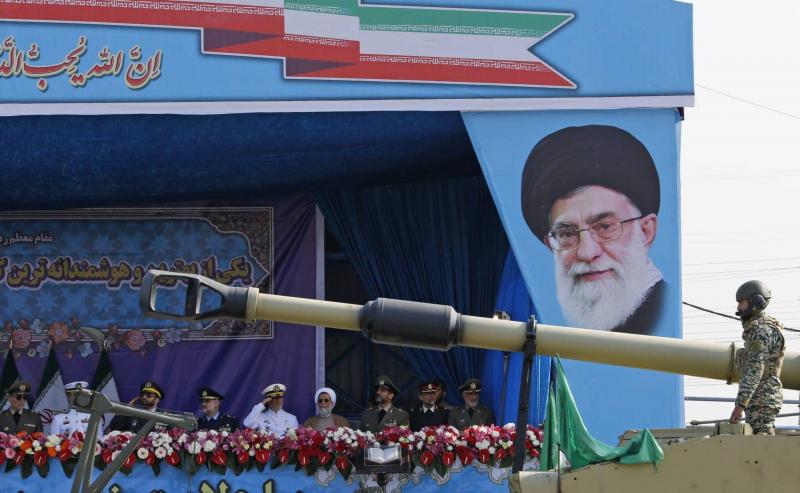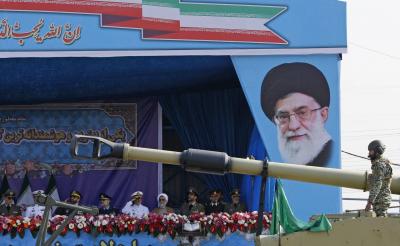The current events in the Gaza Strip have imposed a new military reality in the region, extending from Lebanon to Yemen, passing through Syria and Iraq, with each country in the axis having its own characteristics and resistance. In Yemen, the Houthi Ansar Allah group entered the heart of the battle early from its influential distant position at the Bab al-Mandab Strait, where it has been able to threaten maritime security by targeting commercial ships trying to cross the Red Sea. Over the past months, Washington has appeared both furious and confused, as the Houthis possess a substantial arsenal of ballistic missiles and drones with ranges exceeding 2,000 kilometers, the distance between Tel Aviv and Sana'a. Although they theoretically cannot pose a direct military threat to Israel's interior, unlike the resistance, they can impose a selective maritime blockade against passing Israeli ships through the Bab al-Mandab Strait and threaten U.S. warships that appear to protect them. This has led many Israel-related ships to avoid passing through the Red Sea and route around Africa, amidst U.S. hesitations and political complexities that deter Red Sea bordering countries from engaging in a confrontation against the Houthi group at this time.
Dealing with the "Houthi threat" is one of the contentious files that threaten to explode U.S.-Israeli relations. Despite the open military support Washington provides for Israel's war efforts, there are fundamental disagreements between the two parties, the most significant of which is that Washington does not seem comfortable with the idea of an endless war in Gaza and is skeptical about the possibility of bringing the Gaza Strip under Israeli control. The disagreements become more complicated regarding the actions of the Houthis in the Red Sea, as Washington refuses to launch a direct military strike against the Houthis, prompting Israeli Prime Minister Benjamin Netanyahu to inform the U.S. administration of his intent to take military action against them if Washington does not take any measures. Ultimately, Washington decided to cautiously intervene to protect ships that may be targeted by the Houthis without escalating directly against them. This reserved decision regarding the security threats to navigation in the Red Sea stems from complex calculations related primarily to the situation in Yemen and the ongoing war there since 2014.
### Yemen: Political Complications
The U.S. stance of not engaging with the Houthis is tied to the larger complexities related to the nine-year-old war in Yemen, where the United States continues to refuse to designate the group as a terrorist organization (except for a brief period at the end of Trump's administration) due to arrangements relating to convincing the parties involved in the war of the impossibility of resolving the conflict militarily and the necessity of sitting at the negotiating table. With signs emerging of a willingness from various parties to soften their stances and negotiate a political solution, the U.S. sees no risk in returning to square one, especially since the Houthis have proven to be an unavoidable component in any resolution.
While the Houthis, who control three main ports, claim that their military operations in the Red Sea have clearly defined objectives known to all and do not target anything but Israeli ships, the U.S. has called for expanding the 153 Joint Task Force, a military unit comprising 39 countries focused on securing and combating terrorism in the Red Sea and Gulf of Aden. Egypt has led this force since December 2022 before handing it over to the U.S. Fifth Fleet, which has commanded it since June. While Egypt, along with Saudi Arabia, the UAE, Jordan, and the United States, shoulders the responsibility of protecting global trade and ensuring the safe passage of oil tankers from the Suez Canal, none of them seem keen to engage in direct confrontation with the Houthis at this time, especially as such an operation would appear primarily as a service to Israeli interests rather than a means to secure navigation in the Red Sea.
It is clear that the current U.S. administration does not want to enter into a direct ground conflict with the Houthis for various reasons, not out of fear of the conflict expanding in the Middle East and the Gulf, but for reasons related primarily to the substantial costs of any military operation it may launch against the Houthis, and the absence of effective partners who can shoulder these costs. Additionally, the current U.S. administration is weak and focuses its efforts on monitoring China and protecting Taiwan.
In the long term, America is losing its vital space and even its commitment to the Carter Doctrine and the Roosevelt Agreement.
### The Carter Doctrine
This doctrine was announced by former U.S. President Jimmy Carter, who affirmed the United States' determination to resist any threat to the Gulf, including the use of military force. The roots of this doctrine trace back to the idea of creating “rapid reaction forces” for intervention in the region and urging its allies to participate in this force. A separate military command for this force, known as "CENTCOM," was established.
In 1979, strategic experts in Carter's administration were called upon to set the main lines for the "Carter Doctrine," aiming to compensate for the now-invalidated "Nixon Doctrine." The American strategy founded on the "Carter Doctrine" emphasizes its right to intervene militarily anywhere its interests and the vital interests of the Western world are threatened. Given that the Gulf's oil wealth constitutes a vital interest for Western interests, defending these interests requires an implementation mechanism.
### The Roosevelt Agreement
In the initial meeting between King Abdulaziz and American leader Roosevelt in 1945 aboard an American ship, the map of alliances in the Middle East was drawn, laying the foundations for the historical relations between the two countries, known as the "Roosevelt Agreement."
In conclusion, the situation in the region remains unchanged, awaiting a near relief coming from Washington, which is mired in electoral campaigns, potentially resulting in a strong president who would restore influence and authority to the American giant that has lost its prestige in recent times.




